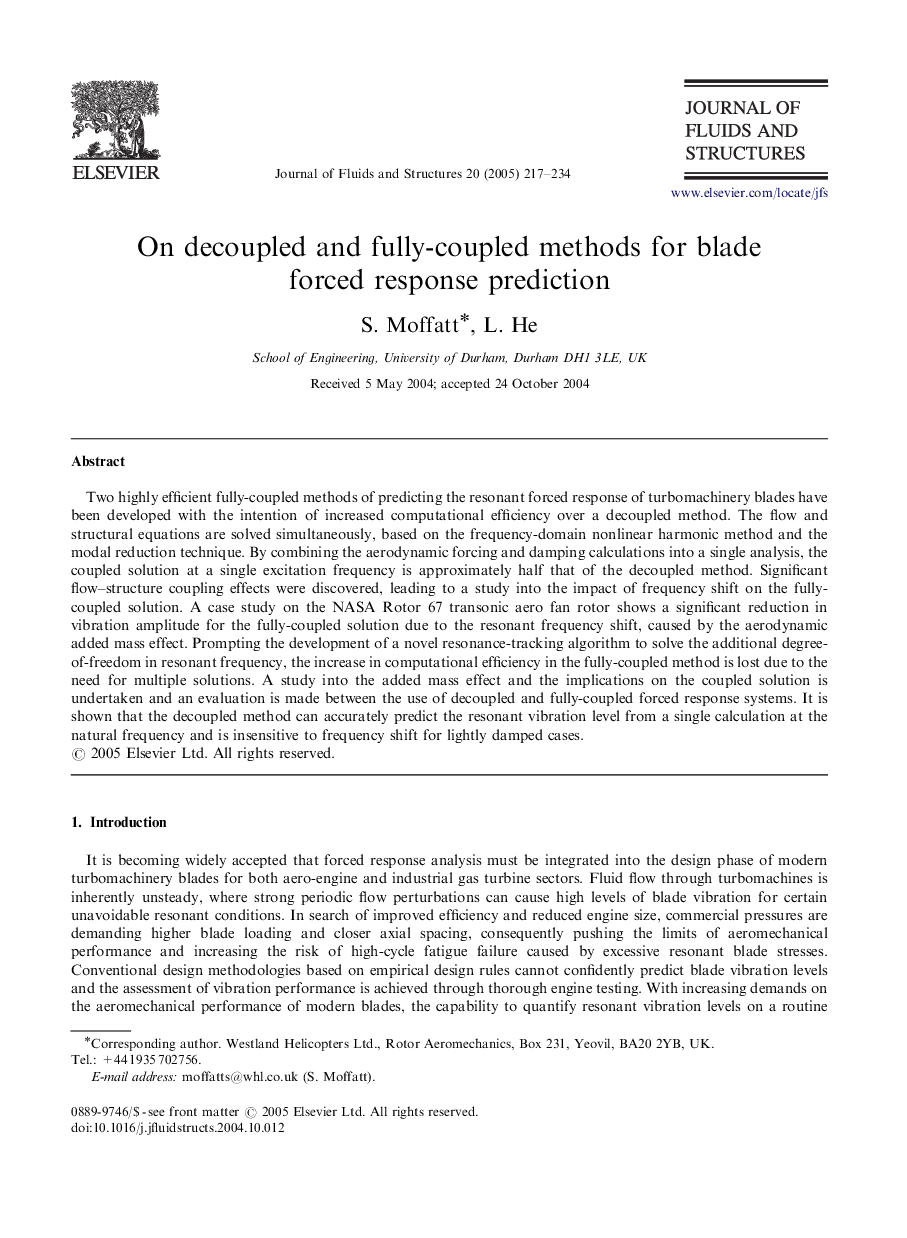| کد مقاله | کد نشریه | سال انتشار | مقاله انگلیسی | نسخه تمام متن |
|---|---|---|---|---|
| 10416527 | 901685 | 2005 | 18 صفحه PDF | دانلود رایگان |
عنوان انگلیسی مقاله ISI
On decoupled and fully-coupled methods for blade forced response prediction
دانلود مقاله + سفارش ترجمه
دانلود مقاله ISI انگلیسی
رایگان برای ایرانیان
موضوعات مرتبط
مهندسی و علوم پایه
سایر رشته های مهندسی
مهندسی مکانیک
پیش نمایش صفحه اول مقاله

چکیده انگلیسی
Two highly efficient fully-coupled methods of predicting the resonant forced response of turbomachinery blades have been developed with the intention of increased computational efficiency over a decoupled method. The flow and structural equations are solved simultaneously, based on the frequency-domain nonlinear harmonic method and the modal reduction technique. By combining the aerodynamic forcing and damping calculations into a single analysis, the coupled solution at a single excitation frequency is approximately half that of the decoupled method. Significant flow-structure coupling effects were discovered, leading to a study into the impact of frequency shift on the fully-coupled solution. A case study on the NASA Rotor 67 transonic aero fan rotor shows a significant reduction in vibration amplitude for the fully-coupled solution due to the resonant frequency shift, caused by the aerodynamic added mass effect. Prompting the development of a novel resonance-tracking algorithm to solve the additional degree-of-freedom in resonant frequency, the increase in computational efficiency in the fully-coupled method is lost due to the need for multiple solutions. A study into the added mass effect and the implications on the coupled solution is undertaken and an evaluation is made between the use of decoupled and fully-coupled forced response systems. It is shown that the decoupled method can accurately predict the resonant vibration level from a single calculation at the natural frequency and is insensitive to frequency shift for lightly damped cases.
ناشر
Database: Elsevier - ScienceDirect (ساینس دایرکت)
Journal: Journal of Fluids and Structures - Volume 20, Issue 2, February 2005, Pages 217-234
Journal: Journal of Fluids and Structures - Volume 20, Issue 2, February 2005, Pages 217-234
نویسندگان
S. Moffatt, L. He,